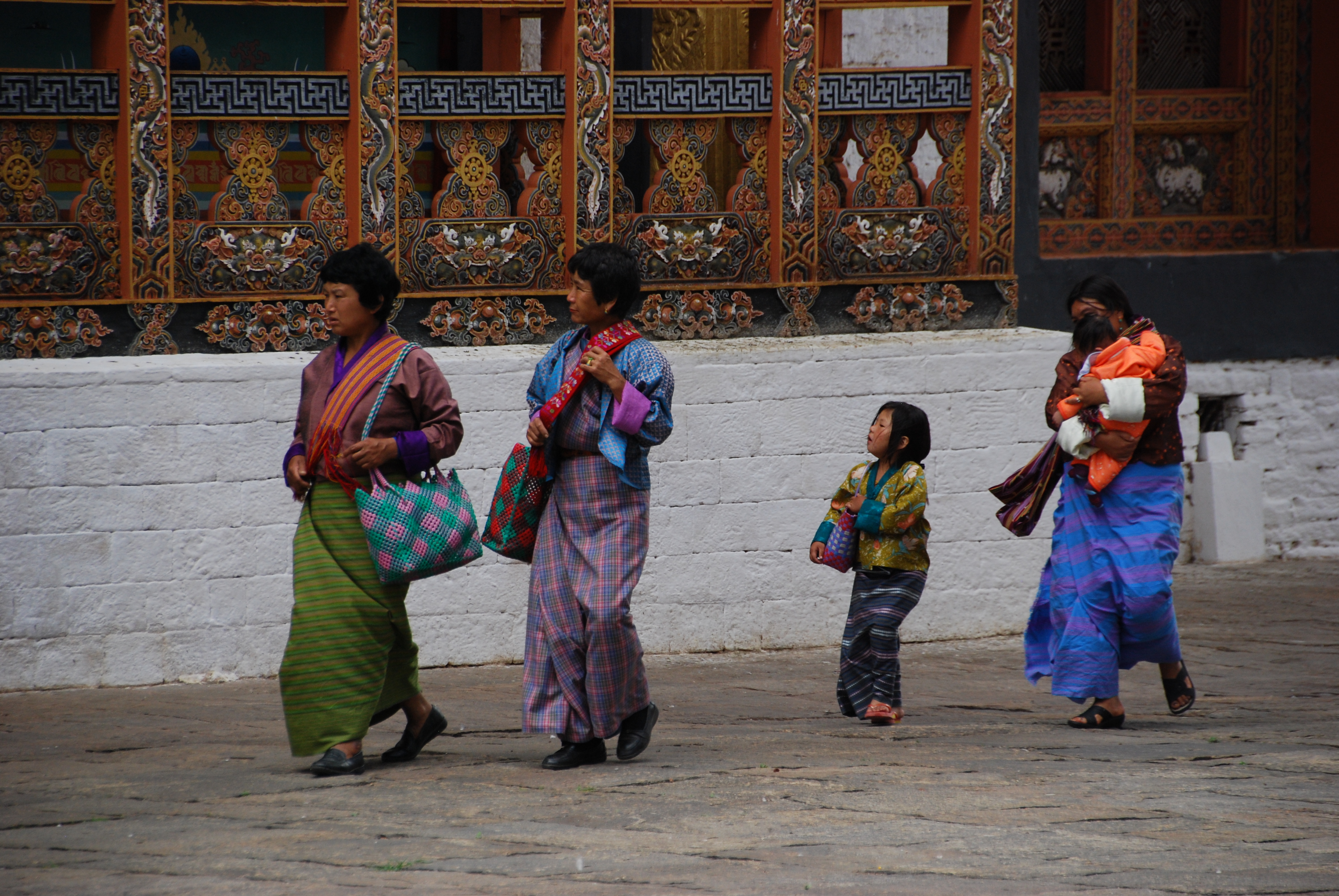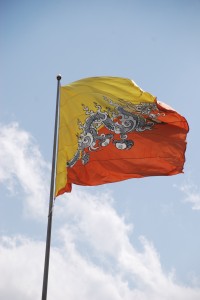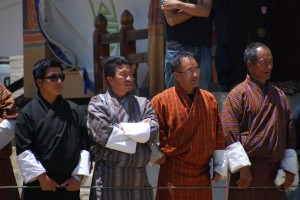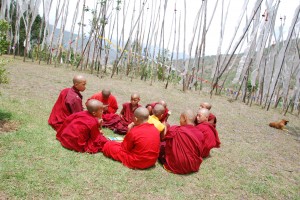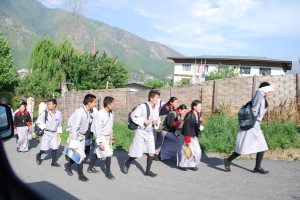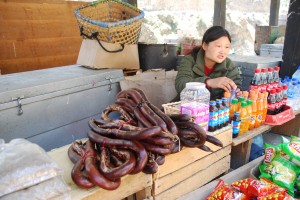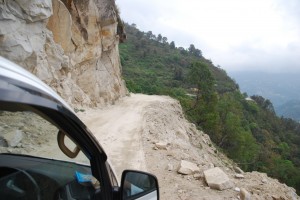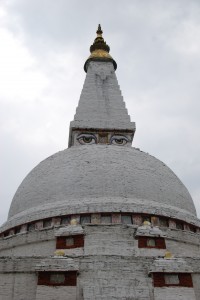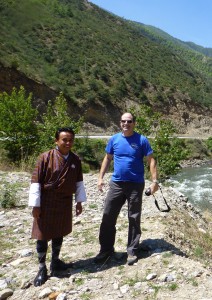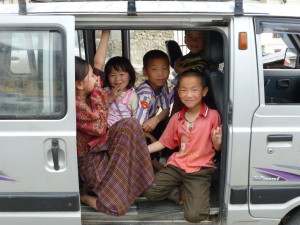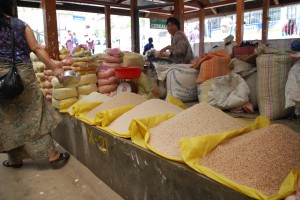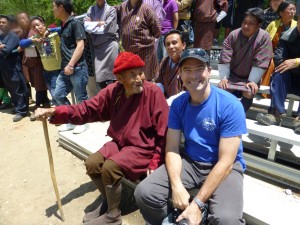Amazing stuff about Bhutan
Bhutan is one of the most obscure and unknown countries in the world today and that’s exactly how they like it. Through centuries of history the Bhutanese have leveraged their remote mountain location and lack of strategic or economic value to remain proudly independent. They have excelled at maintaining their isolation from the rest of the bustling world and being as self-reliant as possible, sometimes it seems to their detriment.
Until the Third King embarked on his revolutionary modernisation program in the 1960s and early 70s the Bhutanese went to great lengths to keep modern society at arm’s length and carefully control how they were impacted by the outside world. Still to this day their goal is to preserve their culture and society as it has existed for centuries and so far they’ve done a fairly good job of it.
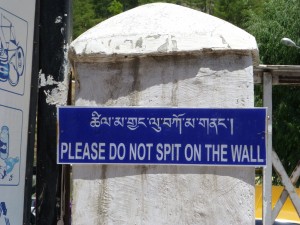
Smoking cigarettes is illegal in Bhutan but chewing betel nut is okay - depending on where you spit it
This is a noble and impressive objective but as a short term visitor it is clear utopia has its limits. Unbelievably but true, Bhutan did not get electricity until 1970 when the first hydro electric plant produced 600 megawatts and the government sold half of it to India and consumed the other half in Thimphu and Paro. Many major towns did not receive electricity until the 1990s and we visited areas that only got power two years ago. And as anecdotal evidence, our nights in Trongsa and Jakar were marred by either total or partial blackouts while we were there. So even power in their major towns is a work in progress.
Television, the backbone and bane of modern society in the western world, hit Bhutan in 1999, allegedly the last country in the world to get it. Originally they only ran Indian shows in Hindi with subtitles. Today television is almost everywhere there’s electricity and cable is available in many places – we saw satellite dishes in a few obscure locations. Bhutan even produces their own television now (one channel) but our guide Taupo said most people watch Indian Bollywood movies.
Mobile phones, the modern necessity of life, were first available in Bhutan in 2001. They are now said to be ubiquitous and we were impressed at some of the locations where Taupo’s phone would ring. We bought a SIM card for Julie’s phone and she managed to get a few wrong numbers from people in India. In other words, all systems normal. But Taupo told us that with the spread of mobile phones the divorce rate went way up because men and women were able to more easily hook up with their forbidden partners.
No formal education existed until the late 1960s, prior to that only boys were educated through the temples and we can presume that education was primarily focused on their religious beliefs. Today the government funds many schools, all coed, with kids wearing the traditional Gho (boys) or Kira (girls) clothes. Education is free until Year 12 but there are also private schools. Bhutan has a couple of universities and also a number of vocational schools scattered amongst the mountains (we passed one for electricians and another for teachers).
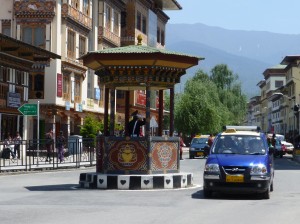
Bhutan has no stop lights. In Thimphu's busiest intersection a man with white gloves directs traffic
We asked some questions about salaries and were told that a low salary, like for a truck driver, was about 15,000 Ngulterms (which we couldn’t consistently pronounce so called them by their equivalent value – the Rupee) per month which is about $320. Experienced teachers now get about 50,000 Nu ($1,050) per month (starting rate is half that) and doctors at the high end get about 60,000 Nu ($1,300) pm. Doctors are mostly trained in India and are quite rich by local standards.
Our guide Taupo pays 10,000 Nu pm for rent of an apartment in Thimphu for his wife and two children. Most people don’t pay any tax but most companies do. This is a common feature in most Asian countries at least, including India and Thailand, probably because people can avoid tax easier than companies.
Most marriages are still arranged by the respective man and woman’s families and the married couple moves into the husband’s family home unless it is already full. This system, which is common across most Asian societies as well, guarantees ongoing support for the elderly but clearly impacts mobility, job opportunities, personal home ownership and privacy.
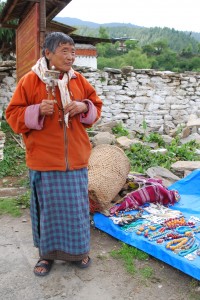
The Bhutanese women raise the family, do the shopping and all the housework, many also work in the fields
We saw many teams of workers on the road or doing other very manual and untrained tasks who were all from India. These workers are undocumented, paid a fraction of what the locals would be paid and live in awful conditions. They usually work in husband and wife teams and their small children can often be seen playing on the side of the road. It can be assumed that somehow they save money to go back home in a better position than when they left. We also heard how Bhutanese go overseas to places like the UK and the US under similar conditions and come home better for it.
For those people who have heard of Bhutan and can name something about it the winner is usually the Gross National Happiness, or GNH. Based on what we have heard and read the story runs something like this. The Fourth King was keen for the people to be content in life but saw short-comings in society. So he followed his father’s actions by improving education, health, infrastructure, employment, just about all aspects of life. He would travel around the country a few time a year, listen to the people speak on a one-on-one basis, fix their problems, all good.
This activity continued to evolve into the Gross National Happiness as a quotient that was deemed more important than an individual’s wealth or modern creature comforts. The unique Buddhist philosophy here is that beneficial development of human society takes place when material and spiritual development occur side by side to complement and reinforce each other. The key is to find balance and harmony between what’s good for the country and what’s good for the individual in a manner which benefits all parties.
The concept of GNH has four basic pillars (although these are sometimes documented differently) – good King, good government, good environment and good religion. While the general population are not rich and do not enjoy some elements of life the western world takes for granted the King and government strives to meet their basic needs and ensure everyone is prospers in their local context. Crime is low, unemployment is low, critical factors such as health and education are rising, life is good. Its just how you package it.
Over the course of eight days in Bhutan we learned a lot about the country, people and unique circumstances of this amazing place from conversations with our guide Taupo. Two conversations really stood out that highlighted how isolated and disconnected the Bhutanese people are from the rest of the world.
Taupo, who is 41 and a well educated guy, has travelled to India and Bangkok (which he said was ‘horrible’ because of the prostitutes) and has spent the last 17 years as a guide dealing with western people all the time.
We were talking at one point about health and the issue of HIV/AIDS came up. He said the government had a good program in place to help these people, so all good there. He then said HIV/AIDS came from Bhutanese men travelling to India and Bangkok to visit prostitutes, which undoubtedly is a factor in the spread of the disease. But I tried to point out to him that HIV/AIDS can be spread through normal hetrosexual contact and homosexual contact also. He said, “we have man and woman relationships in Bhutan but for man and man relationships or woman and woman relationships we don’t have that system here”. Okay….
On another day we were passing through Paro on the way to another attraction and Julie turned to me and jokingly (wishfully?) said she wanted to stop at a McDonalds for a milk shake. In my never-ending quest to learn more about the country I asked Taupo whether he thought Bhutan would ever allow McDonalds to enter the country. He didn’t understand my question so I said, you know the giant American fast food company with restaurants around the world that serve hamburgers, french fries and milk shakes.
He was completely blank on the whole idea and didn’t understand the concept of a fast food restaurant, saying people don’t eat food off street stalls in Bhutan. But we finished the conversation when he said that they have restaurants in Thimphu, the capital, that serve that sort of food but “they are not very popular because young people here only like to eat rice and chillies”. Clearly Taupo had never heard of McDonalds and under-estimated the potential dining preferences of young Bhutanese once they had feasted on a Big Mac.
